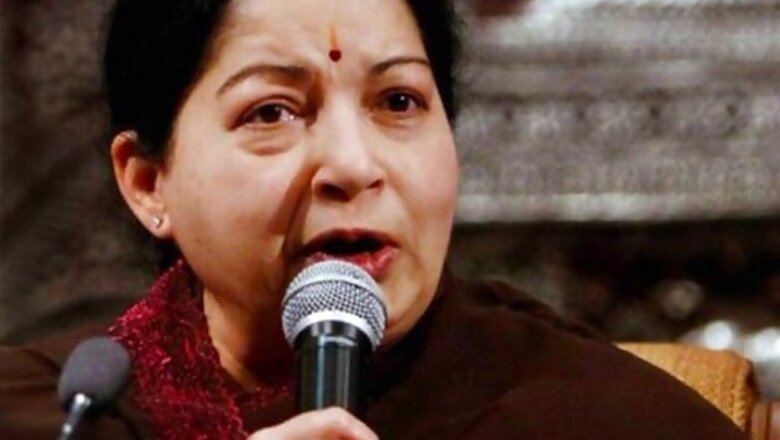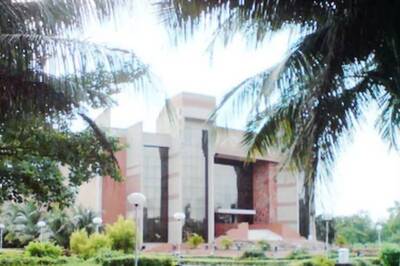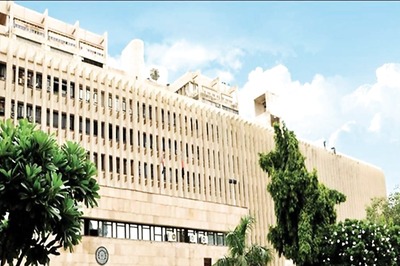
views
Chennai: With the North East monsoon leaving a trail of destruction in Tamil Nadu, Chief Minister J Jayalalithaa pegged the damage at Rs 8,481 crore on Monday and urged Prime Minister Narendra Modi to release Rs 2,000 crore to sustain the relief work.
Earlier in the day Jayalalithaa wrote a letter to the Prime Minister, claiming that 169 lives have been lost in various rain-related incidents since October 1, 2015 and the state need immediate central fund for relief operations. Quickly responding to Jayalalithaa’s letter, Modi instructed immediate release of Rs. 940 crore central funds for rain hit Tamil Nadu.
Detailing the extent of the damage, Jayalalithaa told the PM that despite her government's preventive efforts, the state had suffered severe damage on account of the "extremely heavy and sustained" rainfall which, she said, had left a trail of destruction and that her government had allocated Rs 500 crore for relief work.
The assessment of damages and requirement of funds for immediate relief and restoration of infrastructure which she said had been speedily carried out indicated a much higher financial requirement.
"The requirement of funds for immediate rescue and relief and the temporary and permanent restoration of infrastructure has been worked out at Rs.8,481 crore in all....This assessment has been made as an immediate measure since the Government of Tamil Nadu requires assistance from Government of India to meet the very high expenditure requirements that such a severe calamity has caused. The funds required are well beyond the resources available with the state, including the State Disaster Response Fund," she said.
She requested Modi to depute a central team immediately to make its on-the-spot assessment of damage and to release central financial aid without any delay keeping in view the urgency of restoring many of the infrastructure facilities and services to the flood affected people.
"In the meanwhile, I request that an on account release of Rs 2,000 crore may be sanctioned immediately to enable the state government to sustain the relief and restoration operations with the same vigour," Jayalalithaa said.
Jayalalithaa recalled that a deep depression of 'high intensity' in the Bay of Bengal had hit the Tamil Nadu coast near Marakkanam on November 10, 2015, causing extremely heavy rains, particularly in the four northern coastal districts of Cuddalore, Kancheepuram, Chennai and Tiruvallur.
"Based on the forecast received from Indian Meteorological Department and the alerts received from the National Disaster Management Agency, adequate precautionary measures were taken which minimised loss to life and property," she said, adding state-level agencies and the local administration in the affected districts were put on high alert.
High level teams of ministers and senior IAS officers were deputed to various districts to monitor the preventive, rescue and relief operations while personnel of different departments, including Revenue, Police, Fire Service and Public Works Department were fully mobilised, the CM said.
"In addition, the services of the National Disaster Response Force, Army, Air Force, Navy and the Coast Guard were requisitioned wherever the need was felt. I thank you for the promptness in the dispatch of these forces," she told Modi.
However, despite all efforts taken by the state Government, "as the rainfall was extremely heavy and sustained for several days, it has left a trail of damage and destruction," she said.
Citing an example, she said at Neyveli (Cuddalore.), it rained 437 MM on Nov 9. Similarly, Chennai received the second heaviest monthly rainfall recorded in the past more than 100 years in just the first 20 days of November. The rainfall continued for several days as the deep depression was followed by another low pressure system, she said.
The CM said many parts of the state had been severely affected due to flooding. One hundred and sixty nine lives were lost during this North East monsoon since October 1 and there was widespread damage to property, including dwelling units and crops, she said.
Infrastructure, including roads and bridges, storm water drainage systems, water supply and sewerage systems and electricity supply systems have been 'battered' in many areas, Jayalalithaa said, adding more than four lakh people have been shifted to relief camps even as relief work was being undertaken on a war-footing.
"The tireless immediate rescue and relief operations conducted against heavy odds were widely appreciated," she said.


















Comments
0 comment